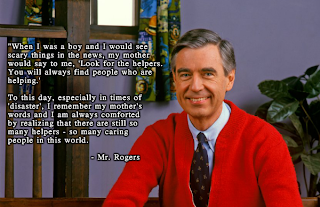Homily from the Feast of the Holy Family of Jesus, Mary & Joseph
The Church calls the family of Jesus, Mary and Joseph “holy.” So, what makes a family “holy?”
If your kids were to ask you why are Jesus, Mary and Joseph called the “Holy Family”, perhaps our shortcut answer would be “Because they’re Jesus, Mary and Joseph. However, Jesus, Mary and Joseph’s holiness does not derive from their identity. Rather, their holiness derives from what they do.
First, Joseph. You get Joseph’s story primarily through the Gospel of Matthew. So, what’s Joseph doing there? Well, there’s a consistent theme for Joseph in the Gospel of Matthew:
“An angel of the Lord appeared to him in a dream and said... ‘do not be afraid to take Mary your wife into your home.’” (Mt 1:20) “When Joseph awoke, he did as the angel of the Lord had commanded him and he took [Mary] into his home.” (Mt 24)
Later, when Herod is threatening the life of Christ, “the angel of the Lord appeared to Joseph in a dream and said, ‘Rise, take the child and his mother, flee to Egypt...” (Mt 2:13) And “Joseph rose and took the child and his mother by night and departed for Egypt.” (Mt 2:14)
And then, “When Herod had died, behold, the angel of the Lord appeared in a dream to Joseph and Egypt and said, ‘Rise, take the child and his mother and go to the land of Israel...” (Mt 2:19-20) And so, “He rose, took the child and his mother, and went to the land of Israel.” (Mt 2:21)
Joseph was a dreamer. He must have had dreams of his own - plans; what he wanted out of life. However, time and again we see Joseph follow not his own dreams but the dreams of his Father in Heaven.
Second, Mary. You get Mary’s story primarily through the Gospel of Luke. So, what’s Mary doing there? When the angel Gabriel announces to her that she is to be the mother of Jesus, she responds, “May it be done to me according to your word.” (Lk 1:38). Mary must have had plans of her own. Her own idea of what she wanted her life to be. However, as soon as she hears the will of God, she reconfigures her life according not to her own desires, but to His: “May it be done to me according to your word.” (Lk 1:38)
Lastly, let’s take a look at Jesus in today’s Gospel. Jesus is 12 years old. And Mary and Joseph lose him. They search for Jesus for three days. (Can you imagine? You’ve been entrusted with the Son of God and you lose him and for three days have no idea where he is?)
Then, they finally find him in the temple. “And he said to them, ‘Why were you looking for me? Did you not know that I must be in my Father’s house?’” (Lk 2:49) Other translations have Jesus say, “Did you not know I must involve myself in my Father’s affairs?”
Jesus isn’t in the temple to show off how smart he is or how well he knows the Scriptures. He’s not there to teach the temple elders a thing or two. He’s there not to take care of his own affairs, but to be about the affairs of his Father. From the very beginning of adolescence, Jesus is about doing his Father’s will, not his own.
Jesus, Mary and Joseph aren’t holy because of who they are. Jesus, Mary and Joseph are holy because of what they do. And they are always doing the will of the Father and rearranging everything in their life in order to do the will of the Father.
Our lives are not our own. Our lives belong to God. Our lives are not about us. Our lives are about God.
Holy families are families whose members put the needs of others before their own needs.
Most especially God’s needs.



















